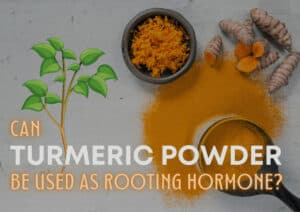How To Use Rooting Powder When Propagating Succulents? Â
- Lakeisha Ethans
- January 17, 2023
If you buy something using the retail links in our articles, sometimes we earn a small affiliate commission. This does not impact the products we recommend.
Rooting hormones are known to dramatically increase the chance of successful propagation.
When propagating succulents, rooting powder is applied the cut end of the succulent immediately before planting into soil. The cut surface of the leaf, stem or root is directly pressed or rolled into the powder with the excess gently shaken off before inserting into a pre-established hole.
Do not force the powdered end of the succulent into the soil as this will cause the hormone to be scraped away from where it is most needed.
Please take onboard that rooting hormones absolutely do not guarantee growth and are not a stand-in for good propagation methods!
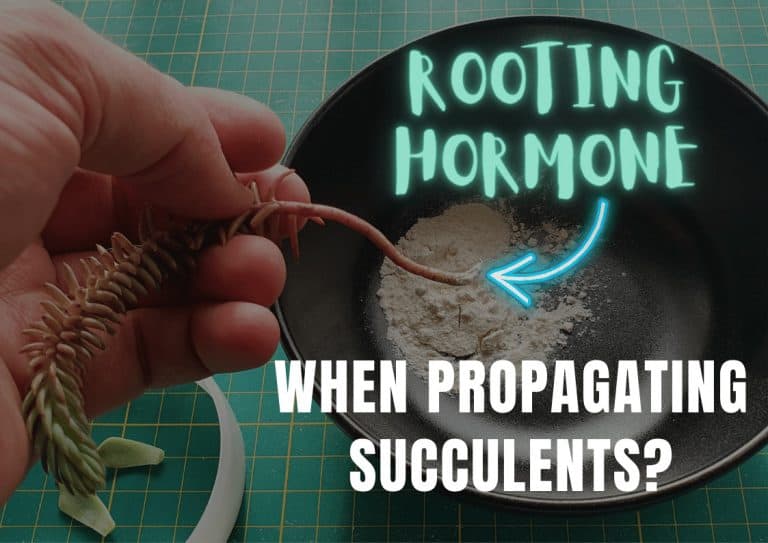
How should I use rooting powder for succulent leaf cuttings?
Leaf cuttings are the most common method of succulent propagation.
- To start, look for nice, plump leaves on a healthy mother plant. You can then use your fingers to gently twist the leaves away from the stem, providing you with a decent leaf cutting.
- Pour out some rooting hormone into a clean, uncontaminated dish.
- Moisten the cut wound of the leaf if it has dried and dip it into the rooting powder, before shaking off any excess.
- Don’t be tempted to dip your cutting into the tub of powder directly as this might spoil the powder for future cuttings.
- Place all leaves on the top of well-drained potting soil. Simply lay them out flat on the soil surface and don’t worry about burying any portion.
- Keep the cuttings away from direct sunlight to avoid them from being scorched or the soil drying out. You only need to mist it with a spray bottle every two or three weeks, or when you notice the soil has become totally dry.
- You can expect to wait between two and three weeks before you notice any roots or new leaves sprouting from the base of the cutting. Baby succulents can then be transplanted.
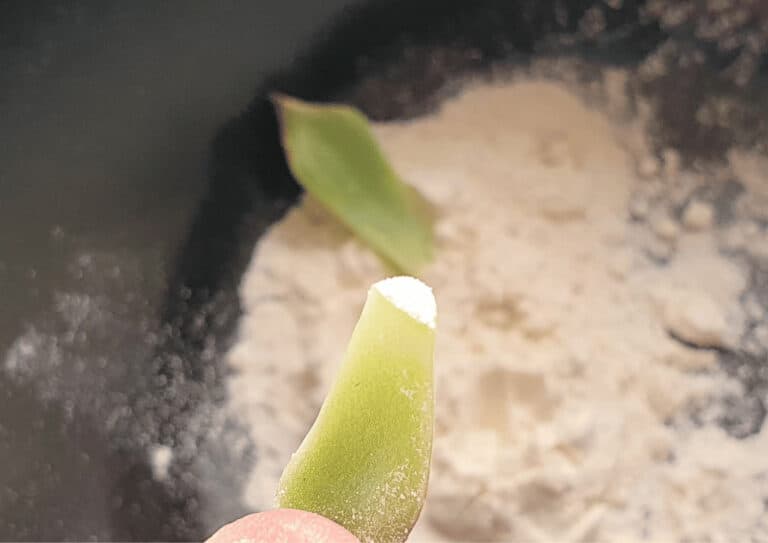
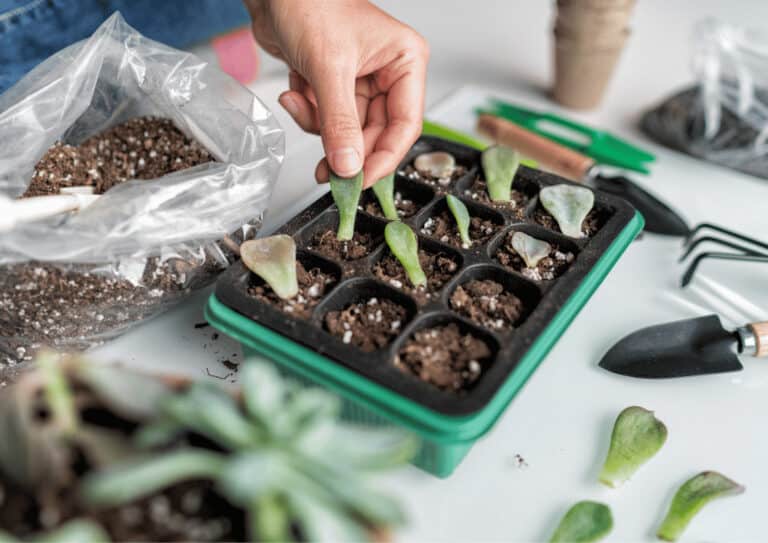
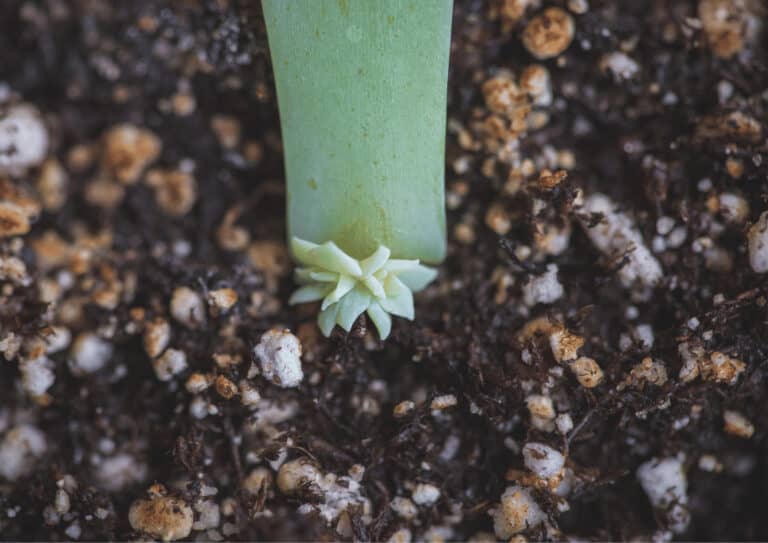
Do I need to use rooting powder when propagating succulents?
It is not necessary to use rooting powder to propagate any plants – including succulents. Rooting hormones are supplements, not necessities.
Succulents, and all other plants, produce their own natural hormones, such as gibberellins, auxins, and cytokinins. These hormones are sufficient to stimulate the growth of roots in a vast majority of cases, though this takes longer than using powder or other synthetic hormones.
Rooting powder is also not the only option when it comes to growth hormones for roots. There are popular liquid and gel rooting hormones that are applied differently from powder.
Rooting liquid comes in two types – one that requires dilution, and another that needs to be concentrated. Rooting gel, on the other hand, can usually simply be directly applied.
Some people choose to use “natural” rooting hormones, such as cinnamon powder, honey, willow water, turmeric, aloe vera, or apple cider vinegar.
However, these natural options do not necessarily speed up root development, though they can promote better root and plant health as it grows. Natural methods also involve a fair bit of preparation, which should be kept in mind.
Our Favorite Succulents And Supplies On Etsy
Take home message
Rooting powder is a great way to promote faster root development in succulent stem and leaf cuttings. They’re commonly used by applying them to the moist “wounded” areas of succulent cuttings, where roots will eventually grow from.
While roots are developing, these cuttings need to be kept away from direct sunlight, eventually producing growth in 2-3 weeks.
It’s not compulsory to use rooting powder to propagate any plants, but it can certainly be helpful to improve your chances of success. You may also choose to opt for various other forms of rooting supplementation, like rooting gel or liquid. There are also natural rooting hormones that you can make from scratch, but are unlikely to produce the same result as concentrated chemical mixes.

Lakeisha Ethans
Houseplant Writer
Mother to two humans and hundreds of plant babies. Lakeisha uses her 15 years of experience as a content writer to specialise in simplifying what you need to know to grow and care for all indoor plants.
Similar Posts
Is Rooting Hormone Poisonous To Cats & Dogs?
Rooting hormone is a must-have for many plant-lovers, but could it be dangerous or toxic to curious dogs and cats in your home?
Can Turmeric Powder Be Used As Rooting Hormone? Exploring The Facts
As an easily accessible and cost-effective option, turmeric raises the question: can it be used as a rooting hormone?


